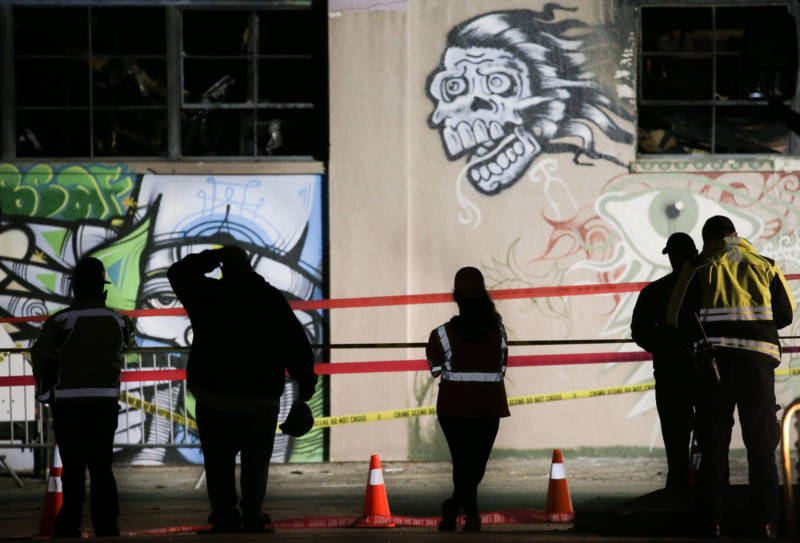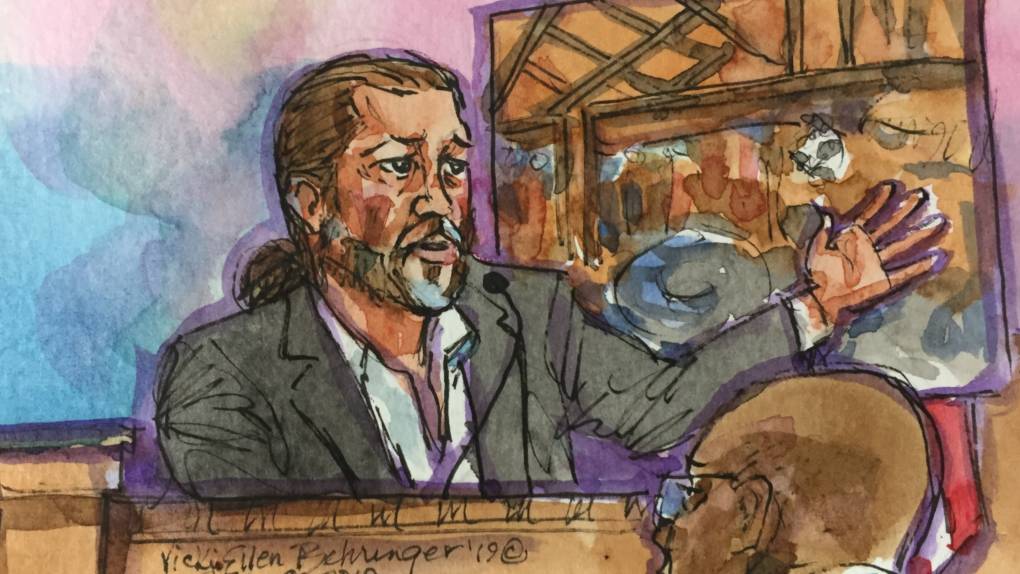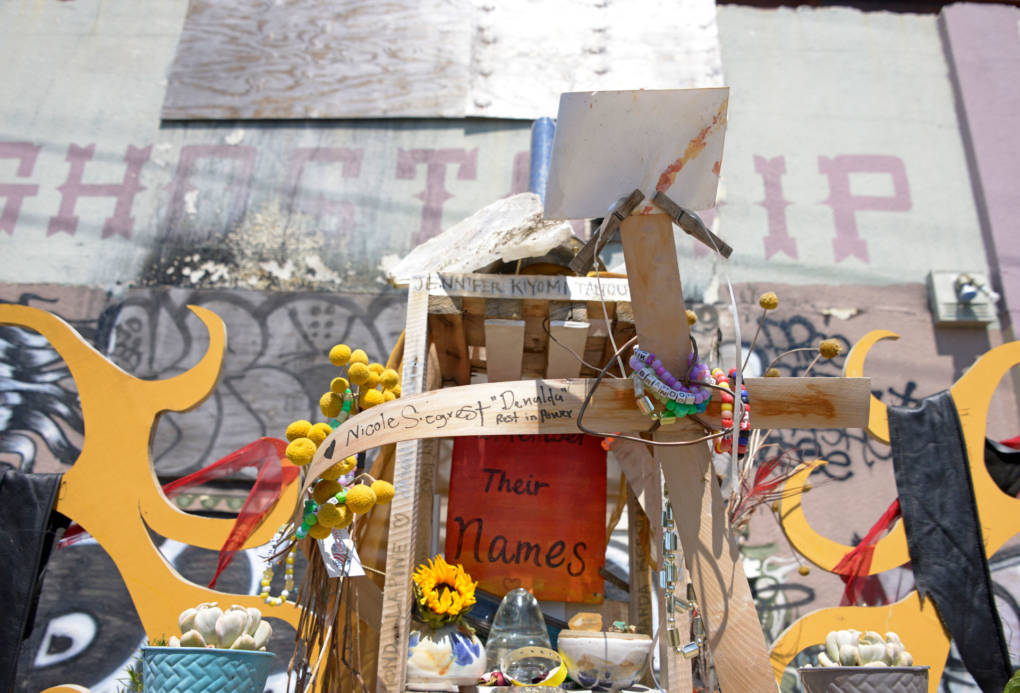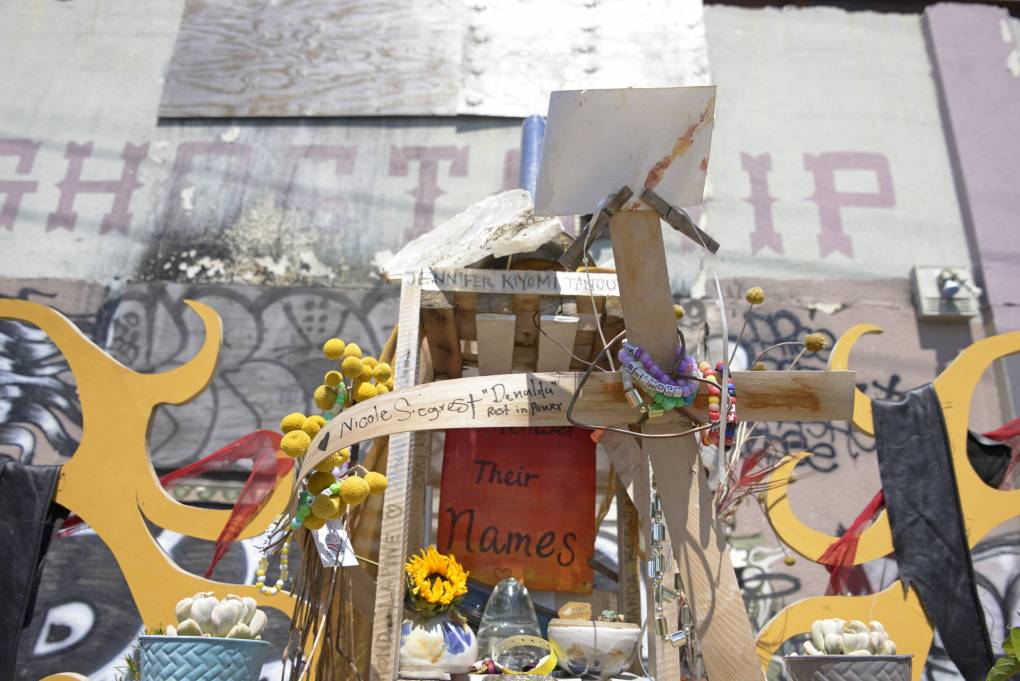He pointed back to testimony from Sharon Evans who said she overheard a group of men in dark clothing boasting about the fire and how quickly it had spread. He also pointed to testimony from former tenant Darold Leite, who testified he heard an argument, bottles breaking and seven to eight men who left in a hurry. Serra also brought up other testimony by individuals who say they heard an argument the night of the blaze.
Serra also argued that Oakland fire personnel had perjured themselves during testimony. That included Maria Sabatini, an Oakland fire investigator who said she had not entered the Ghost Ship following an alleged arson fire outside the warehouse on Sept. 26, 2014. The testimony contradicts that of five others who said that Sabatini had entered the warehouse to inspect it then.
“The fire department has misled, misstated in some instances, in some instance lied and perjured themselves,” Serra said.
“Why would they perjure themselves?” Serra asked. He said it was because they knew people were living in the warehouse and it was their duty to red tag it if they found something wrong.
“If they admit they did nothing, Oakland would be liable,” Serra said. He called it a “conspiracy to protect Oakland,” and he said Almena was on the stand to create a scapegoat so civil liability could be deflected.
Serra argued that personnel from the Oakland Fire and Police departments, as well as from Child Protective Services, had been through the Ghost Ship dozens of times and never cited it. That gave Almena the impression that he was doing nothing wrong, Serra argued, adding that since officials gave the impression that nothing was wrong he could not have been acting in a reckless manner or with any disregard for life.
Serra also conceded there were violations to the fire code, but those did not amount to criminal negligence.
He said also reiterated that a number of former tenants testified they felt the building was safe and that it wasn’t a “death trap” or “tinderbox.”
Serra admitted his client had lied to police on a number of occasions about people living in the warehouse, but Serra argued that it was at the instruction of the landlords. He said landlord Eva Ng was responsible for obtaining permits for changes to the premises, and that’s why she instructed him to lie – to protect her and her brother Kai Ng’s interests.
Serra ended his closing arguments by putting up a large photo of Almena, his wife Micah Allison and their three children.
“Do you think he (Almena) would risk his children?” Serra asked. Was he reckless and indifferent? Absolutely not.”
Closing Arguments on Behalf of Max Harris
Defense attorney Curtis Briggs, who represents Max Harris, wrapped up his closing arguments Tuesday, arguing there is enough reasonable doubt to find his client not guilty in the deadly 2016 Oakland warehouse fire.
The prosecution concluded its closing arguments Monday, arguing the defendants were criminally negligent in violating nine different fire codes, including not installing safety measures like sprinklers and fire alarms and holding unpermitted events like the one on Dec 2. The prosecution on Monday also said Almena had violated the terms of the lease almost immediately by allowing people to live there.
But Briggs pointed to the courtroom where the trial has been taking place since its preliminary rounds began in early April.
“There were no fire sprinklers inside (the warehouse). There are no fire extinguishers in here. Convict Max anyway,” Briggs told the jury. “There are no illuminated exit signs in this courtroom. There was one in the warehouse. Convict Max anyway.”
He also said that some of the fire codes that the prosecution argued were broken were actually the responsibility of the owners to implement.
Briggs argued Harris did not live in the Ghost Ship when the lease was signed, or when Almena began allowing people to live there. He also said Harris wasn’t there when a side fire door was installed or a set of stairs toward the front of the warehouse was built, both without the required permits.
Briggs laid out a list of people, saying they weren’t being convicted, including landlords Kai and Eva Ng, Ben Cannon, who did electrical work at the warehouse, and Jon Hrabko, who Briggs said organized the Dec. 2 event.
“They did not ask you to convict Kai or Eva Ng,” Briggs said, addressing the jury.
“They asked you to convict Max,” Briggs repeated after each person listed.



